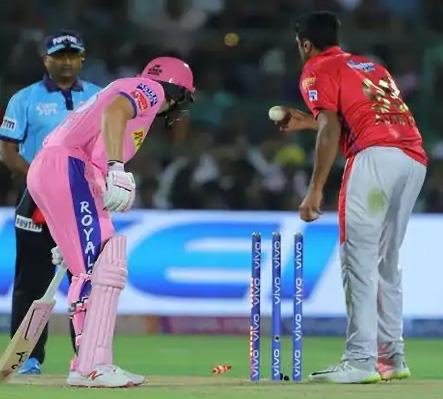Jasprit Bumrah’s Workload Debate: Balwinder Singh Sandhu Criticizes Modern “Workload

Using saliva on the ball permanently banned, Mankad moved to the run-out section: MCC
The Marylebone Cricket Club has made several revisions to its Code of Laws, which governs international cricket. The new rules will not be implemented until October 20, 2022. In the meantime, the MCC will update the essential documents to assist with umpire and official training on a global scale.
Replacement Players: A new clause, Law 1.3, has been added to the MCC that handles replacement players. Replacements are now treated as if they are the players on the field they are replacing. They will be held responsible for any penalties or dismissals inflicted on the player during the game.
Rotation of strikes: The MCC made a significant alteration to another legislation, Law 18.11, which states that when a batter is caught, the player who comes to bat will begin at the striker’s end (unless it is the end of an over). Prior to the change, players were assigned to the nonstrikers’ end if the batter crossed the line before the catch was taken, but the law now credits the bowler instead. It was first used by the England and Wales Cricket Board in the Hundred tournament.
Dead ball scenario: The “dead ball” situation occurs when a bowler throws the ball first to run out the striker before beginning their delivery movement. This is an exceedingly rare event, which has previously been referred to as a “no ball.”
Wide judging: The hitters’ unfair advantage has been removed from Law 22.1. In modern-day cricket, batsmen play a lot of unconventional shots, and as a result, they move around the crease before the ball is moved to raise uncertainties in the mind of the bowler. The new rules define a “wide” as a fielding error that occurred anywhere from where the batter is standing or wherever the striker has stood since the bowler began their run up, and has passed wide of the striker in a normal batting posture.
Permanent Saliva Restriction: Due to health concerns, the new laws create a permanent ban on putting saliva on the ball, which will be implemented when men’s cricket resumes after a COVID-19 suspension in July 2020. According to the MCC, studies found that the prohibition had little or no impact on the number of swing bowlers available at the time. Sweat-polishing the ball will still be authorised.
Mankading is no longer considered unfair: The Lord’s-based MCC, which has been the sole authority on cricket laws since its inception in 1787, announced that the modifications would take effect on October 1. When a non-striker moves out of the crease, a bowler may choose to whip off the bails instead of completing his delivery to the hitter on strike, resulting in a “Mankad” dismissal.
While legal, the dismissal, named after Indian bowler Vinoo Mankad, who ran out Australia’s Bill Brown in a similar fashion in 1947, has been deemed unsporting. The MCC stated that, while the wording of the law would remain the same, it would be renamed Law 38 (Unfair Play) instead of Law 41 (Unfair Play) (Runout).





